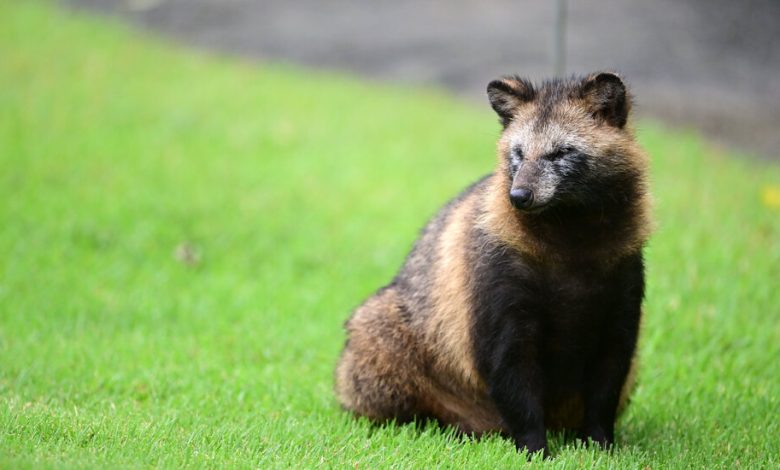What Are Raccoon Dogs?

On Thursday, scientists unveiled new data on the possible origins of the Covid-19 pandemic — and put a strange, squat creature squarely in the spotlight.
Meet the raccoon dog; it earns its name from its black facial markings, which give the animal a masked appearance and a more-than-passing resemblance to those infamous raiders of urban trash cans.
The animals were at least occasionally sold at the Huanan Seafood Wholesale Market, where many virologists suspect that the Covid-19 pandemic may have started.
Scientists had previously announced that swabs from the market had tested positive for the coronavirus that causes Covid-19. The new data revealed that some of these same swabs also contained substantial genetic material from raccoon dogs.
The findings did not prove that raccoon dogs were infected with the virus or that they had passed it on to humans. But they are consistent with the possibility that wild animals at the market may have set off the Covid-19 pandemic.
More on the Coronavirus Pandemic
- Covid Origins: The debate about what might have caused the coronavirus pandemic has re-emerged, with Republicans in Congress pushing the theory that a laboratory leak was to blame. But it might be hard to find definitive answers.
- Covid Testing: The Biden administration appears to be planning to end a requirement that travelers coming from China present a negative Covid-19 test before entering the United States.
- Long Covid: A large study found that Covid patients were significantly more likely to experience gastrointestinal problems a year after infection than people who were not infected.
- New Drug’s Long Odds: A promising new treatment quashes all Covid variants, but regulatory hurdles and a lack of funding make it unlikely to reach the United States market anytime soon.
Here’s what to know about the animal in the news.
What are raccoon dogs?
Despite their name, raccoon dogs are not close relatives of raccoons. They are members of the canid family, a group that also includes domestic dogs, and are most closely related to foxes.
Raccoon dogs are omnivores, dining on food sources like rodents and berries. Although they appear svelte in the summer, they pack on the pounds for winter, when their fur also becomes thicker. They are the only canid species known to hibernate and are monogamous, often living in pairs.
Where do they live?
Raccoon dogs are native to East Asia, including parts of China, Korea and Japan, where they are known as tanuki.
They have also become widespread in parts of Europe, where they are considered an invasive species. They are sometimes hunted as pests.
Why are they farmed and sold?
Raccoon dogs have long been farmed for their fur. China is a leading producer of raccoon dog pelts; in 2014, the country produced more than 14 million pelts, 100 times as many as Europe, according to one report.
They are also sold for their meat in live animal markets. They were sold at the Huanan Seafood Wholesale Market at least as late as November 2019, researchers have reported.
Are they the source of the virus that causes Covid-19?
Not necessarily. Laboratory experiments have shown that raccoon dogs are susceptible to, and capable of transmitting, the novel coronavirus. But that does not mean that they are the natural reservoir for the virus. Even if raccoon dogs at the market were infected, they might have been an intermediate host, picking up the virus from bats or another species.
Raccoon dogs and bats were both common on and around some of the farms that supplied the market, scientists have noted.
A similar scenario may have unfolded two decades ago, after the emergence of SARS, which is also caused by a coronavirus. In 2003, scientists found evidence of infected palm civets and raccoon dogs at a live animal market in Shenzen, China. But subsequent research ultimately pointed to bats as the natural reservoir for the virus that causes SARS; raccoon dogs appeared to be intermediate hosts.
Can I pet a raccoon dog if I see one?
It’s probably not a good idea, as tempting as it might be. Covid-19 aside, the animals are known to be vectors for other diseases, including rabies. The Royal Society for the Prevention of Cruelty to Animals recommends against keeping raccoon dogs as pets.




